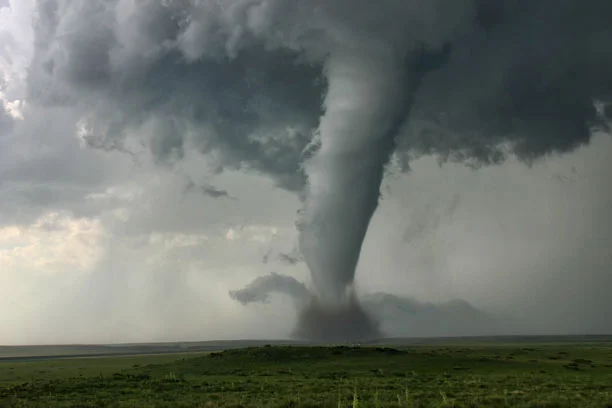What You Need to Know in the Event of a Tornado


Spring brings warmer weather, rain showers and new growth — but it can also bring storms. Tornadoes threaten most of the Midwest, even those outside of “Tornado Alley.” They can be sudden, and there is no guaranteed safety if you are in one’s path.
Practicing tornado safety before there’s a tornado warning threatening your home or family helps mitigate risk. Here are some ways to prepare for a tornado.
Begin by putting a tornado plan in place and sharing it with your family or roommates. Make sure that everyone, especially children, knows where you can take shelter quickly. Although tornadoes can be rare and you may feel like they will never pop up in your area, it is a good idea to practice tornado safety drills. These will help you be as prepared as possible to stay calm and ready in the event of an emergency.
Flying debris is the greatest danger during a tornado, so store protective coverings (like a mattress, sleeping bags, thick blankets or other similar items) close to your designated shelter space. A safe space should also have a portable weather radio, one that can work when the electricity is out using batteries or a hand crank. Now is a good time to change the batteries to ensure it will work if needed when the power goes out, and store extra batteries nearby, too. When a tornado watch is issued, keep your TV or radio on so you can hear any updates or warnings.
If you don’t feel you have adequate shelter during a storm, look for “storm shelter” signs on buildings and storefronts that you can get to quickly in case of severe weather.
If you have farm buildings on your property, be sure they’re built to withstand storms, which may help you avoid having to file a tornado damage claim.
Make sure you know the common myths about tornado safety, and prepare yourself so you’re ready when a tornado warning hits.
If you wait until you actually see a funnel cloud, you might not have enough time to find shelter. Here are a few early warning signs that indicate severe weather may be on the horizon:
You should also familiarize yourself with these severe weather watches and warning signs. They are crucial when it comes to tornado safety.
This is what to do after a tornado warning is issued:
Mobile homes and vehicles are particularly risky in a tornado, so seek shelter elsewhere. Find safer tornado shelter options, such as in a sturdy building.
If you know you are going to be driving during potentially bad weather, map out storm shelter buildings in advance. If you are in a vehicle and you can safely get lower than the level of the roadway, like in a ditch, leave your car and lie in that area, making sure to cover your head with your hands. Avoid going under bridges; they don’t offer very much protection against flying debris and can create a traffic hazard.
Stay where you are until the radio or TV has announced the danger has passed or until emergency personnel give you instructions.
Stay calm and alert, keeping your family together. Carefully render aid to those who are injured, but avoid moving anyone with a neck injury. Wait for emergency personnel to arrive to give more direction.
Because they may still be carrying electricity, stay away from power lines and any puddles with wires in them. Stay out of heavily damaged homes or buildings, as they could collapse. Avoid matches or lighters in case of a natural gas leak.
Be ready in and out of tornado season by contacting your Farm Bureau agent to make sure you have the right amount of coverage and protection in case of a tornado.